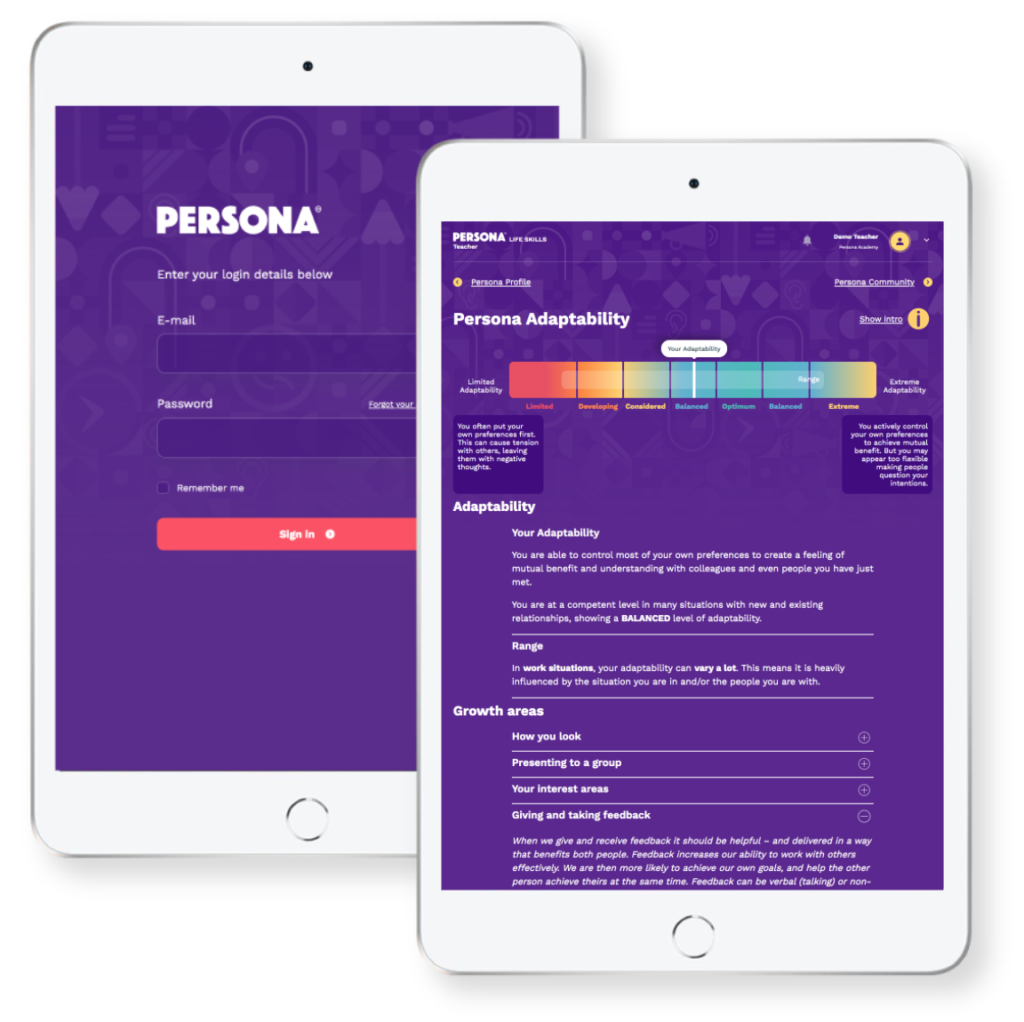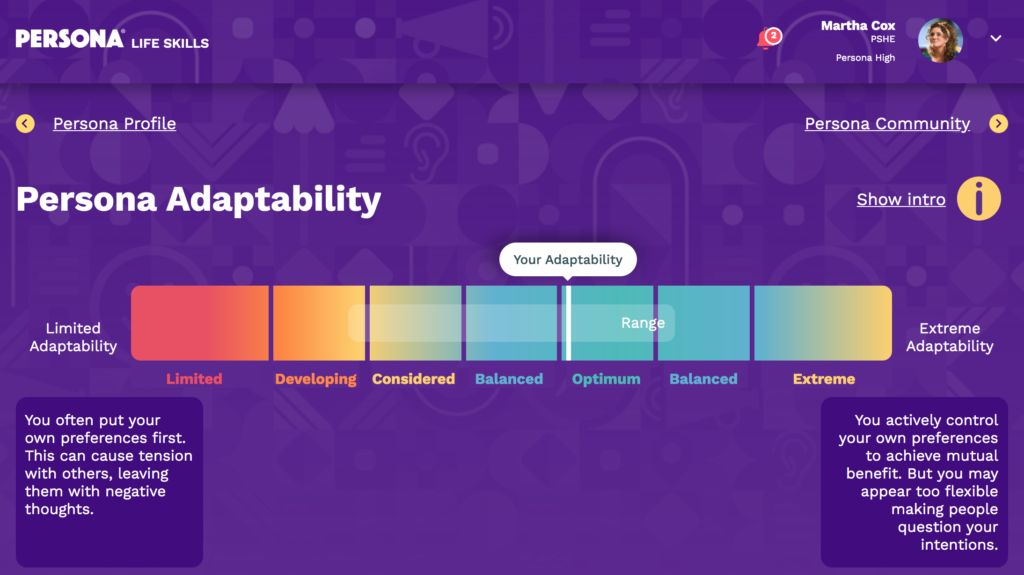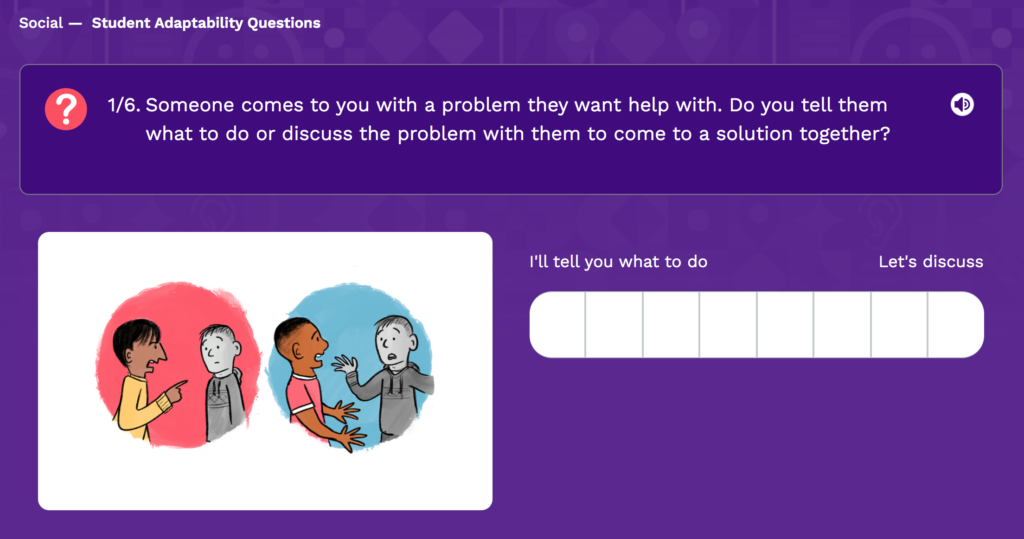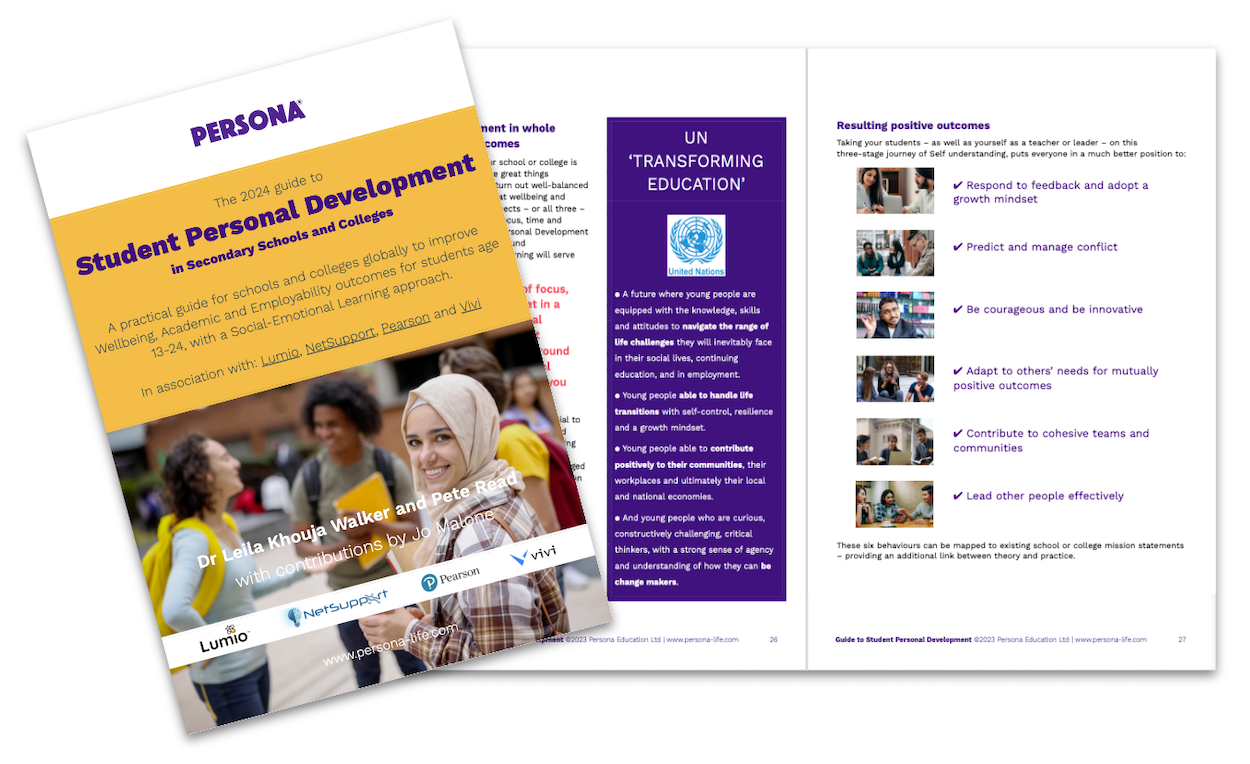New platform feature: Student Adaptability

Persona Life Skills e-learning now includes a unique student Adaptability measure designed specifically for teenagers.
10-Mar-21
By Dr Leila Khouja Walker, Chief Product Officer
Following an incredibly tough year for students, one skill that will have been critical for many is, undoubtedly, an ability to adapt.
From an evolutionary perspective, we know from nature the importance of adaptation in the “survival of the fittest” theory proposed by Darwin in his On the Origin of Species in 1869. But unlike the species observed by Darwin, in the past year our students did not have time on their side when adapting to the new environment they suddenly found themselves in. Instead, they were expected to adapt in a matter of a few days.
But here comes the good news! Adaptability can be learnt.
What is Adaptability?
Adaptability is how well we consider the needs and preferences of other people, before we make decisions about how we communicate and behave, in any situation. How much you adapt in different situations shows whether you have considered the other person’s preferences as well as your own, and whether you are aiming to achieve a positive outcome both for yourself, and for them.
Preferences are choices we make about things like how we dress, how we talk, what we take an interest in and being open to feedback. For example, if you go to a job interview without any preparation, the interviewer will quickly see that you haven’t considered what they might expect from you. You are showing limited Adaptability. But if you prepare thoughtfully and adapt the way you dress and talk, you are showing optimum Adaptability.
So Adaptability is something we can improve – working towards an optimum level, as shown on the scale below.

Adaptability in Persona Life Skills
Thanks to R&D grant funding from Innovate UK, the Persona Life Skills e-learning app now includes a unique Adaptability measure designed specifically for teenagers, and adapted from large scale empirical research by behavioural scientists David Merrill and Roger Reid1.
When understanding Adaptability we can filter for context. For example, is your adaptability higher in a social context compared with a learning context? If it is, then you can direct your improvement efforts more towards learning situations.
Students are given a series of scenarios to collect information about their thinking, communication and behaviour, some in a social context, others in a learning or work context. Together they build an accurate picture of the individual’s level of Adaptability at that point in time.

Based on the answers to these scenario questions, students are provided with information on their average Adaptability and their Adaptability range. It is useful for them to know if they have a more focused Adaptability level, or if it varies depending on the situation.
Adaptability guidance for students
The Persona Life Skills algorithm provides a personalised commentary, and suggests growth areas, on four Adaptability aspects. We encourage students to use these growth area suggestions across different life challenges presented in the learning modules (Islands) in the app, created to help them apply this new learning to real-life situations.
How we look
How we look can have a significant impact on how relaxed (or not) we make someone feel – especially someone we don't know very well.
Presenting to a group
Giving a presentation in class is most successful when the audience is engaged, and learns something interesting or useful. It should not just be you talking about what you have been asked to present.
Interest areas
Having a wide range of interests can help make your interactions with friends and classmates more positive. It will give you the ability to adapt in a range of situations and with different people.
Giving and taking feedback
When we give and receive feedback it should be helpful – and delivered in a way that benefits both people. Feedback increases our ability to socialise and work with others effectively.
Persona Education offers free access to its Persona Life Skills e-learning platform for secondary schools and colleges interested in developing their students’ social-emotional life skills, to boost wellbeing and employability.
About the author: Dr Leila Khouja Walker has been working in the education sector for 25 years. An ex-teacher and pastoral deputy head, she is now a respected edtech and pedagogy thought leader, leading development of the personality insights life skills e-learning app Persona Life Skills, at the Bristol based edtech company Persona Education Ltd. www.persona-life.com
1 Personal Styles and Effective Performance, 1981




